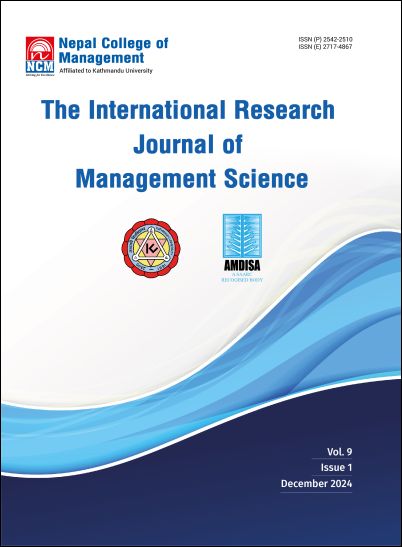The Impact of Institutional Quality on Economic Growth in South Asia: A Panel Data Analysis from 2006 to 2023
DOI:
https://doi.org/10.3126/irjms.v9i1.72723Keywords:
Institutional Quality, Economic Growth, South Asia, Fixed Effect ModelAbstract
Purpose: The study examines South Asia's institutional quality and highlights its role in addressing economic, social, and promoting sustainable development, poverty reduction, and social progress.
Method /Design: The study examines the impact of institutional quality on economic growth in seven South Asian economies, employing a fixed-effect model. It uses panel data from 2006-2023 and focuses on corruption control, government effectiveness, regulatory quality, and WGI 2023 indicators.
Findings: The study reveals that institutional quality significantly impacts economic growth, despite limiting the positive effects of foreign direct investments and trade openness. However, improving institutional quality can mitigate competition from trade openness in areas where FDIs operate, optimizing their spill-over effects. The study concluded that institutional improvement impacts South Asian economic performance.
Practical Implications: The research reveals that understanding institutional quality's impact on economic growth aids in designing effective policies for sustainable development, particularly in South Asia, balancing growth with social inclusivity and environmental sustainability.
Originality/Limitation of the Study: The study explores the impact of governance, rule of law, corruption control, and bureaucratic efficiency on economic performance in countries like India, Pakistan, Bangladesh, and Sri Lanka. It uses recent data and region-specific factors, but data reliability and consistency need to be improved.




